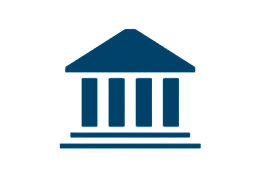Educational Studies
Approach education with empathy
Understand the complexities surrounding education and apply your studies to a plethora of real-world opportunities.
Educational Studies is about more than classroom teaching. It’s about understanding how education works. Education can be used for repression and social control, or for liberation. How do we educate in a way that is compassionate and effective? How can we make a difference in the world?
At Macalester, we dive deep into these kinds of questions. What does it mean to learn? What does it mean when people who are trying to learn are confronted with stressful conditions such as mental health concerns, structural racism, or ineffective teachers? What are the implications of those barriers on the lives of learners and the whole of our society?
We are complex human beings trying to make our way in a challenging world. Education involves more than creating lesson plans (though you’ll learn practical skills like that too). Our students walk away with the ability to implement and apply abstract concepts. They consider a person’s cultural, political, intellectual, and spiritual dimensions. Empathy is crucial to education. Our students infuse this skill into everything they do.
Why Macalester?
Our average class size is 16. Don’t expect to just sit back and absorb information. Instead, you’ll discuss, debate, teach, collaborate, and build community. You’ll be a serious scholar, attending national conferences about topics like educational justice alongside your professors. You’ll apply the theories you learn in the classroom to the real world.
Interdisciplinary approach
Our interdisciplinary approach means you can customize Educational Studies to your interests. Passionate about the outdoors? Teach outdoor education to elementary schoolers at the Ordway Natural History Study Area. Want a global perspective? Take a class about education’s role in international development.
Life after Macalester
Our alumni are engaged in teaching, social service, and advocacy work, but they also take their skills into the corporate world.
-
Recent Employers - Macalester College
- Americorps
- College Possible
- Great River School
- Accenture
- Allied Vaughn
- Ascend Charter Schools
- Asian American Organizing Project
- Avenues for Homeless Youth
- Centennial High School
- Center for Photography at Woodstock
- CommonBond Communities
- Crossroads from Women – Alburquerque NM
- East Side Neighboorhood Services
- El Colegio High School
- EXPLO
- Fig + Farro
- Fortune Financial
- Global Kids
- Grandview School District
- Hays
- HERO High School – Bronx
- Highland Park Montessori School
- Human Horizon Films
- IES Abroad
- Jardin Magico
- KIPP Academy Lynn Elementary
- Minneapolis Public Schools
- Minneapolis Youth Coordinating Board
- Minnesota Office of Higher Education
- Montessori Training Center of Minnesota/St. Kates – St. Paul
- National Institute of Health
- Neighborhood House
- Octopi Brewing
- Partners in Excellence – Burnsville, MN
- Peace Corps Comoros
- Regions Hospital
- San Francisco Day School
- Social Science Research Collective
- Somali Museum of Minnesota
- Stand for Children
- Step by Step Montessori
- Stooges Education
- Sundborn Children’s House
- Sycamore School
- Widseth Smith Nolting
- Wisconsin Center for Education Research
- Woodland Centers
- World Savvy
- Yale University
-
Recent Graduate Schools - Augsburg University
- Brown University
- City University of New York City College
- Hamline University
- Harvard University
- Lewis and Clark College
- Marian University
- St. Catherine University
- University of Chicago
- University of Michigan/Ann Arbor
- University of Minnesota/Twin Cities
- University of Wisconsin/Madison
- University of Wisconsin/River Falls
Educational Studies in the cities

Attend school board meetings to witness educational policy in action, create community forums at a local library, addressing issues like resource distribution, standardized testing, and anti-racist teaching practices.

Learn about youth development by volunteering at the children’s hospital in St. Paul.

A few (of a long list) of nearby places to teach, volunteer, or intern: Homework and Hoops, Hmong-American Partnership, and the Special Olympics.
Join our community
- Education and Advocacy Lecture Series: This annual three-day event brings in a nationally-known education scholar to engage with the campus and the broader community about their research. Our students host the event, introducing the speaker and sponsoring the question-and-answer sessions.
- Education and Power Series: The Education and Power Forum Series is a partnership between the Educational Studies Department and the Kofi Annan Institute for Global Citizenship at Macalester College. The series seeks to create forums that are intentional, democratized spaces where stakeholders in the community meet to dialogue, debate, strategize, network with, and learn from each other and educational leaders.
Department Happenings
- Kurth-Schai Education & Advocacy Lecture Series: This annual event brings in nationally-known education scholars to engage with the campus and the broader community about their research. Our students host the event, introducing the speaker and leading the question-and-answer sessions. The keynote speakers for the March 22, 2024, event will be Eve Tuck & K. Wayne Yang, two leading scholars on the subject of decolonization.
- Education and Power Series: This year we will have two forums the evening of Wednesday March 27th and two forums the morning of April 6th. On the evening of the 27th the forums will run from 5 – 7:30pm in the Smail Gallery at Macalester College. On April 6th the forums will run from 10am – 12:30pm at the Black Youth Healing Arts Center in Frogtown. Light refreshments will be served at each event. Please arrive fifteen minutes early so we can stay on schedule.